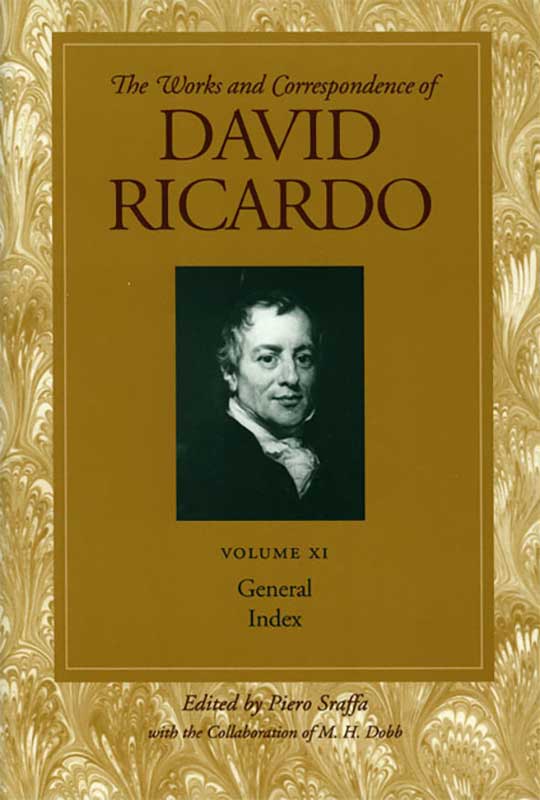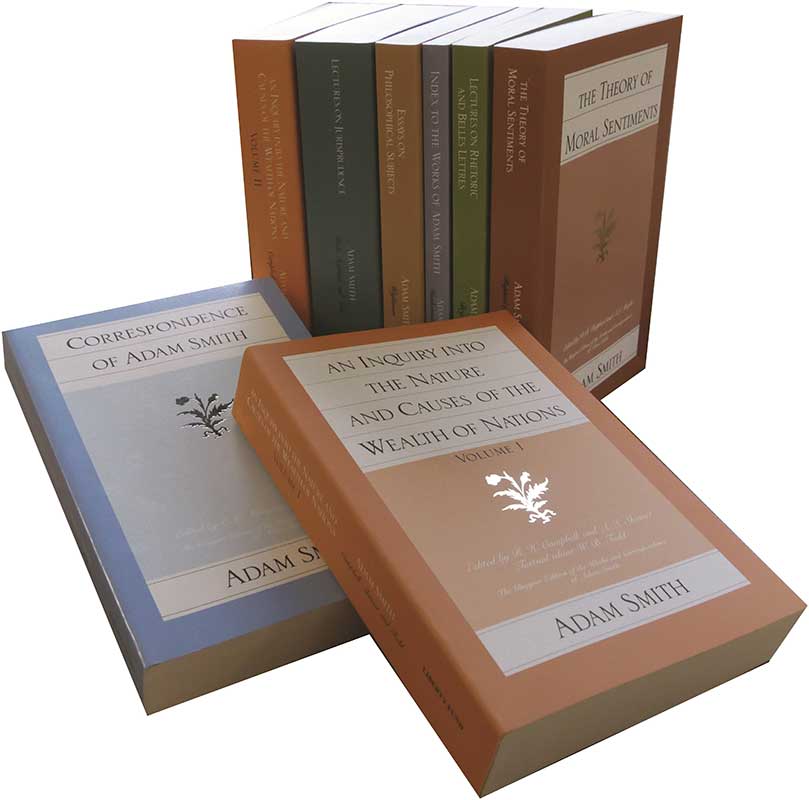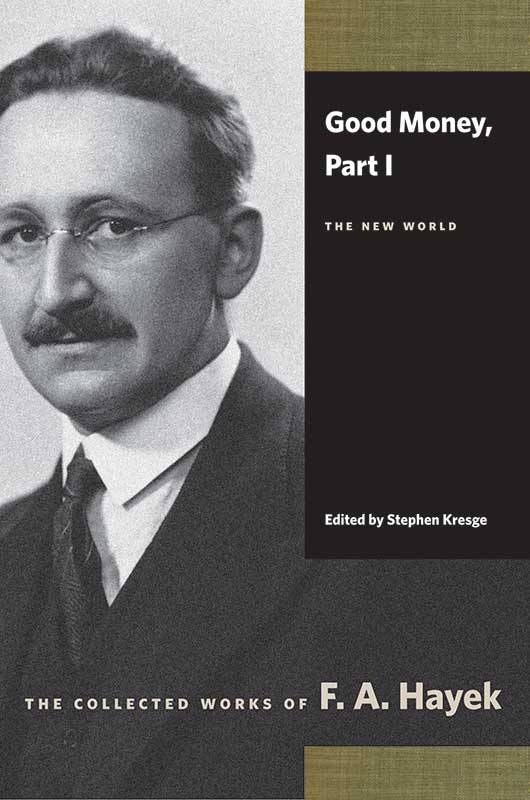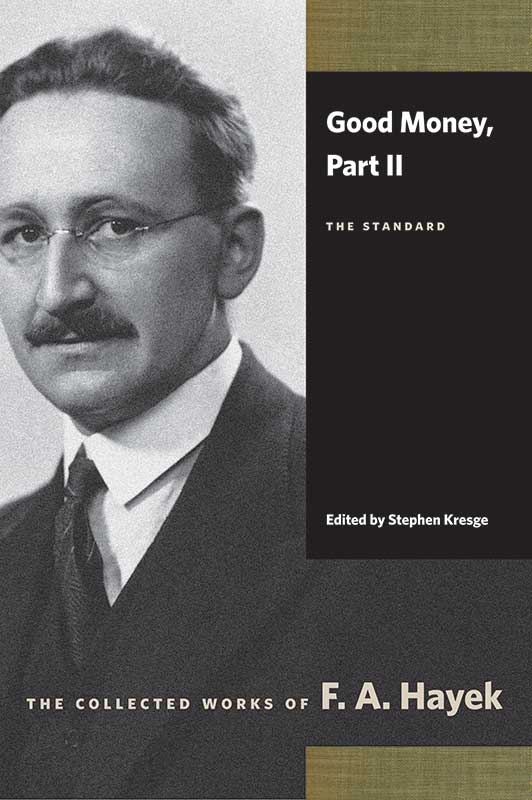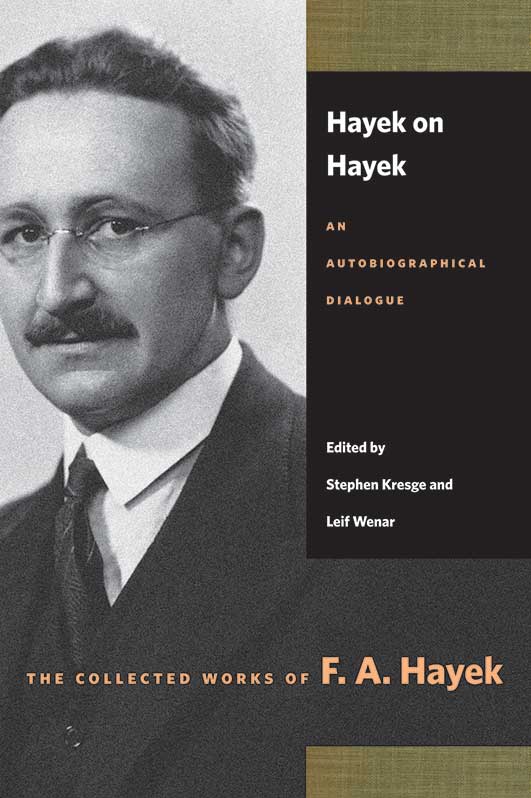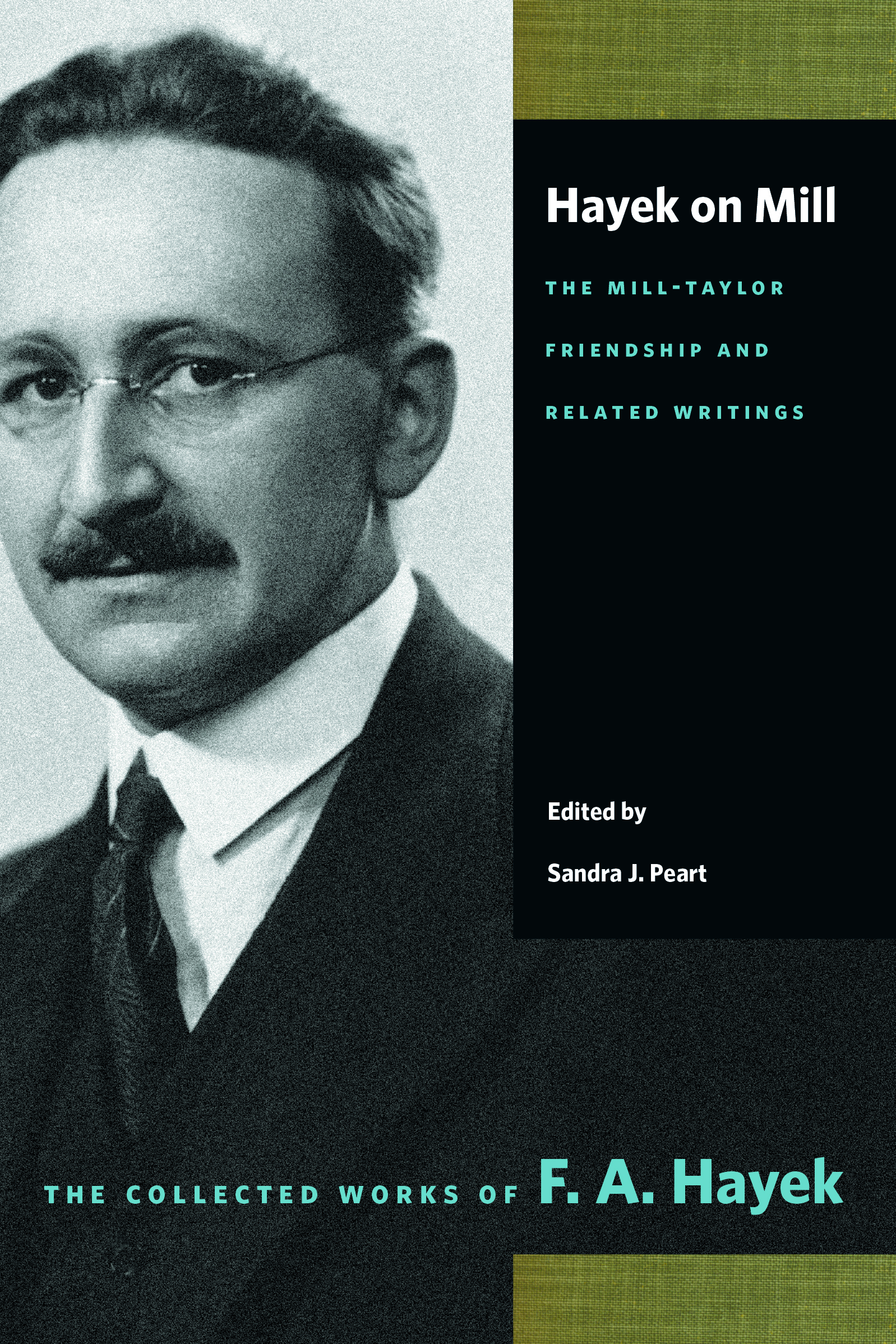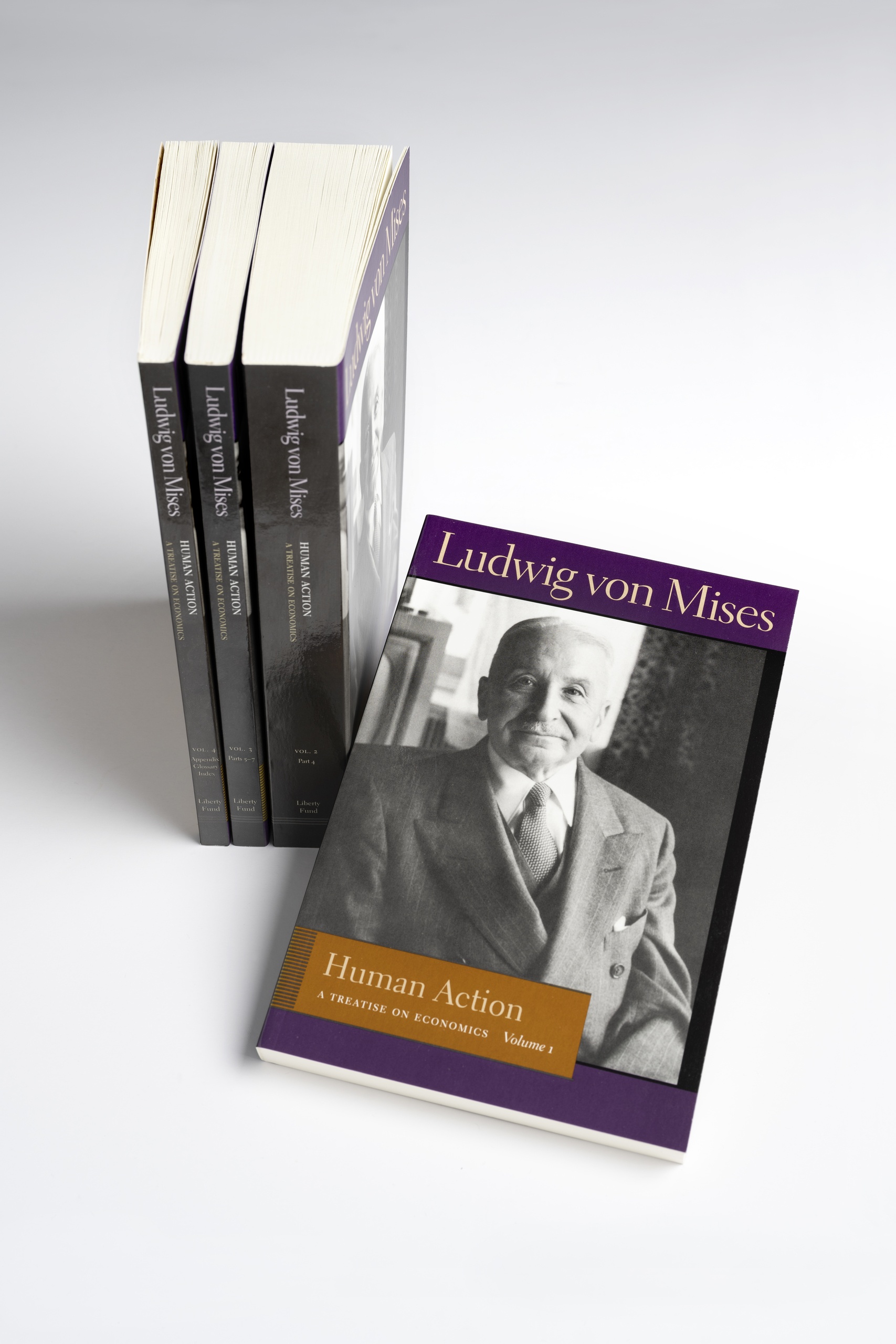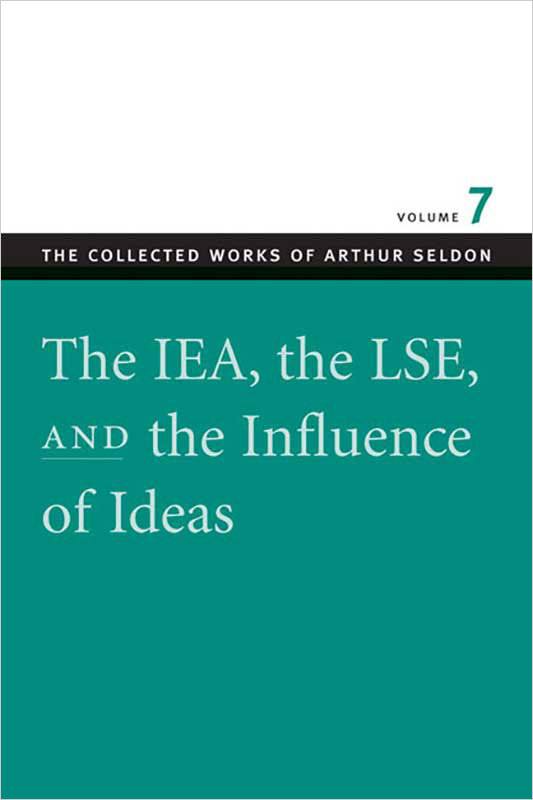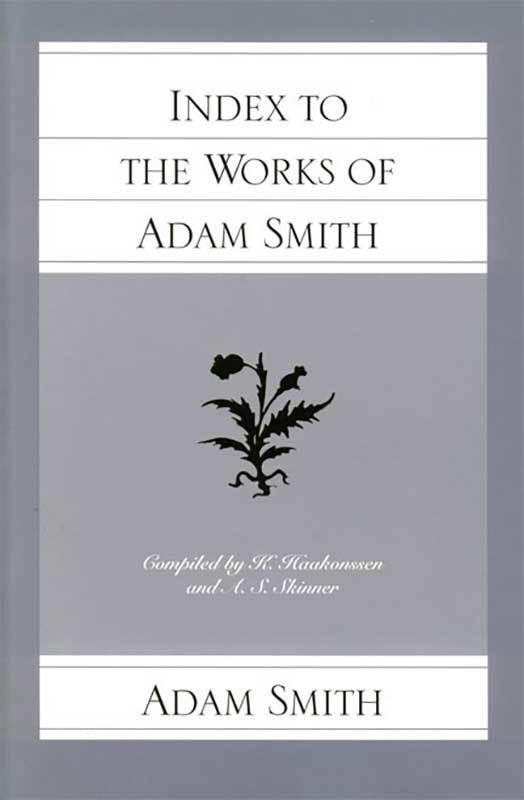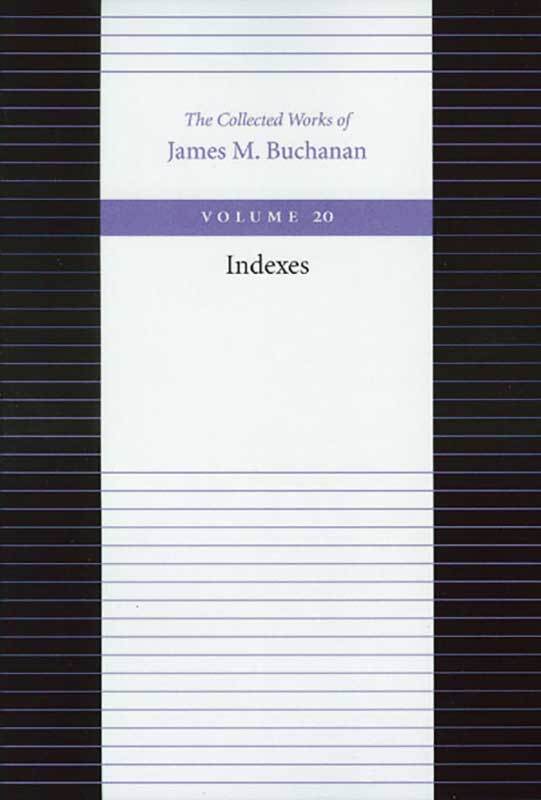Economics
Our economics collection showcases classic works in the discipline. Many of our titles explore how economic reasoning applies to political science and other social sciences, as well as the relevance of economics as moral philosophy. A consistent theme is the view that economics is the study of human choice and its consequences, both intended and unintended.
Download Catalog-
General Index
by David Ricardo
/ Learn MoreThe last volume of this collection is a comprehensive index to the previous ten volumes of The Works and Correspondence of David Ricardo. It gives students, academics, and researchers a single unified source for locating Ricardo’s many contributions to economics. The index is designed to help readers trace their topics of interest through all of Ricardo’s writings, his speeches, and…
-
The Glasgow Edition of the Works and Correspondence of Adam Smith (Paperback)
by
/ Learn MoreNow complete in seven titles/eight volumes, this series is the first uniform collection of Adam Smith’s writings. The Glasgow edition is published in hardcover by Oxford University Press. The paperback edition is published by Liberty Fund.
-
Good Money, Part I
by F. A. Hayek
/ Learn MoreHayek’s deep interest in the concept of money and its role within the economy is developed in Good Money, Part I. Consisting of seven of Hayek’s most significant monetary writings from the 1920s, this collection focuses on his critique of the idea that price stabilization is consistent with the stabilization of foreign exchange. F. A. Hayek (1899–1992), recipient of the…
-
Good Money, Part II
by F. A. Hayek
/ Learn MoreThis complementary volume provides five additional essays to expand our understanding of Hayek’s ideas about money and monetary policy. Good Money, Part II: The Standard investigates the consequences of the “predicament of composition” which led to one of Hayek’s most controversial proposals: that governments should be denied a monopoly on the coining of money. F. A. Hayek (1899–1992), recipient of…
-
Government Failure and Over-Government
by Arthur Seldon
/ Learn MoreIn the fifth volume of The Collected Works of Arthur Seldon, Arthur Seldon uses public choice economics research to support his theory of over-government. The term “over-government” was coined by Seldon and is defined as the failure of governments to govern well, leading the public to avoid government programs in favor of markets. Seldon explains how the results of government…
-
Hayek on Hayek
by F. A. Hayek
/ Learn MoreThis volume gives readers insight into F. A. Hayek’s life and ideas. This detailed chronology depicts Hayek’s early life and education, his intellectual progress, and the academic and public reception of his ideas through a series of oral history interviews. Hayek’s own autobiographical notes are included. F. A. Hayek (1899–1992), recipient of the Medal of Freedom in 1991 and co-winner…
-
Hayek on Mill
by F. A. Hayek
/ Learn MoreBest known for reviving the tradition of classical liberalism, F. A. Hayek was also a prominent scholar of the philosopher John Stuart Mill. One of his greatest undertakings was a collection of Mill’s extensive correspondence with his longstanding friend and later companion and wife, Harriet Taylor-Mill. Hayek first published the Mill-Taylor correspondence in 1951, and his edition soon became required…
-
Human Action
by Ludwig von Mises
/ Learn MoreIn Human Action, Mises starts from the ideas set forth in his Theory and History that all actions and decisions are based on human needs, wants, and desires and continues deeper and further to explain how studying this human action is not only a legitimate science (praxeology) but how that science is based on the foundation of free-market economics. Mises…
-
Ideas, Persons, and Events
by James M. Buchanan
/ Learn MoreThis final volume (save for the Index) in Liberty Fund’s The Collected Works of James M. Buchanan acquaints us most intimately with the man himself. Included are essays and short pieces that shed light on Buchanan’s view of the world. Ranging from personal reflections on the art and science of economics, to restatements of his central themes and reminiscences of…
-
The IEA, the LSE, and the Influence of Ideas
by Arthur Seldon
/ Learn MoreVolume 7 of The Collected Works of Arthur Seldon includes six works that discuss the role of the Institute of Economic Affairs, where Seldon spent most of his working life. Friedrich Hayek regarded himself as partly responsible for the creation of the IEA. The Institute, founded by Sir Antony Fisher, was influential not only in the United Kingdom—where it had…
-
Index to the Works of Adam Smith
by Knud Haakonssen
/ Learn MoreThis comprehensive Index to the Works of Adam Smith gives students and researchers in all fields a single, unified source for locating Adam Smith’s many contributions to such diverse fields as economics, morality, philosophy, and law. The easy-to-use index helps students, readers, and researchers trace their topics of interest through all of Adam Smith’s work. The index covers The Wealth…
-
Indexes
by
/ Learn MoreThis volume presents a comprehensive index to the entire series of The Collected Works of James M. Buchanan. Included is an annotated copy of the entire curriculum vitae, indicating in which volume in the series the various items appear and, correspondingly, those items that have been omitted. As the editors observe, “This is a series that no serious scholar of…
35% OFF YOUR ENTIRE BOOK PURCHASE
With promo code:
FALL2025
Expires October 31, 2025

